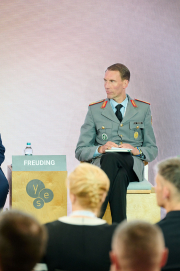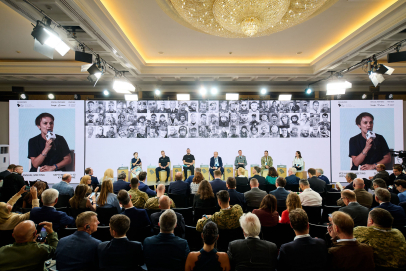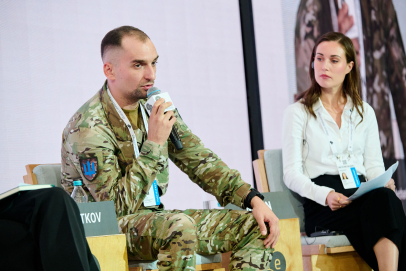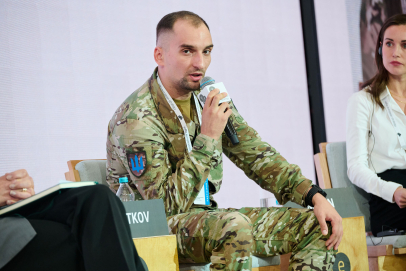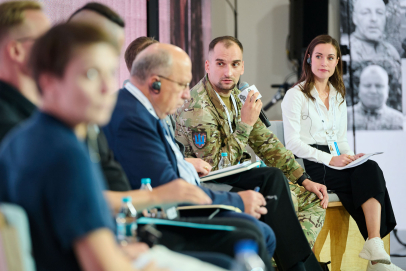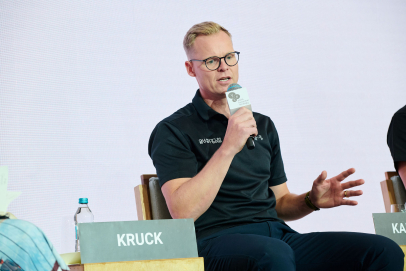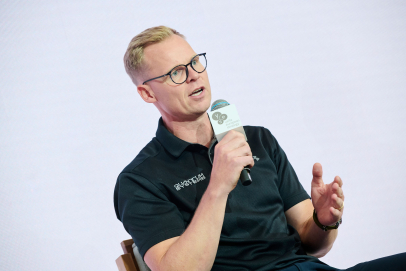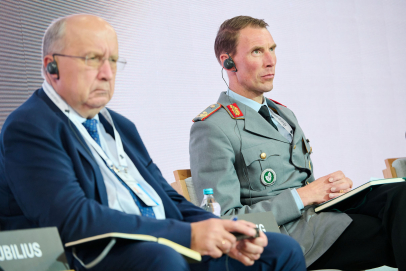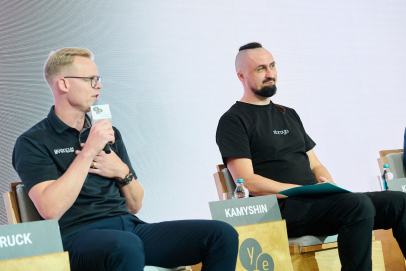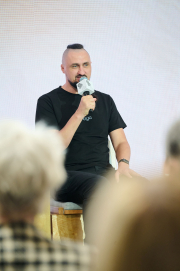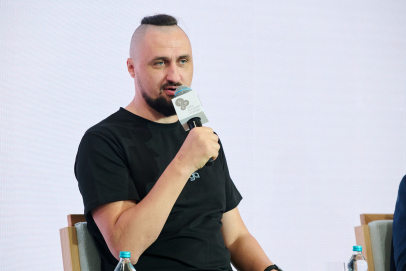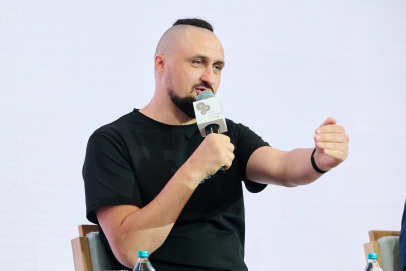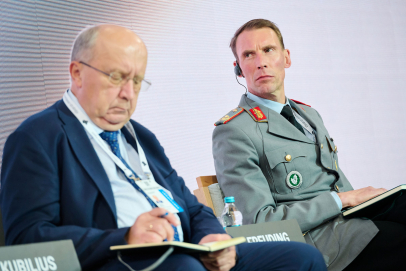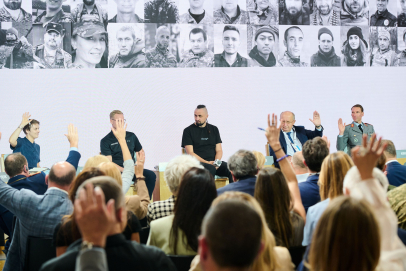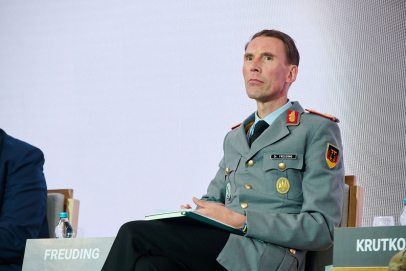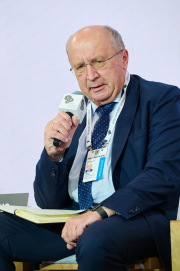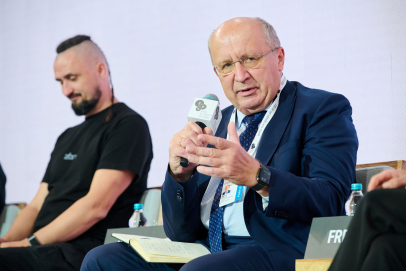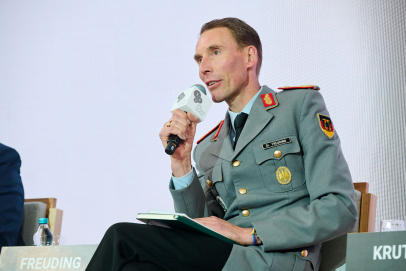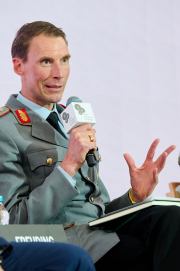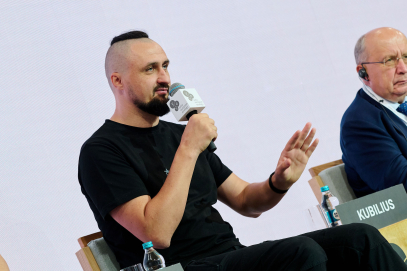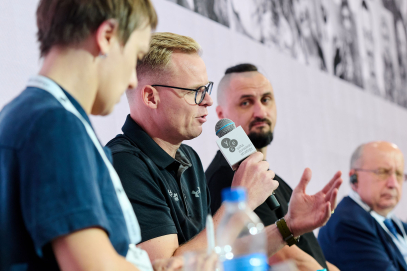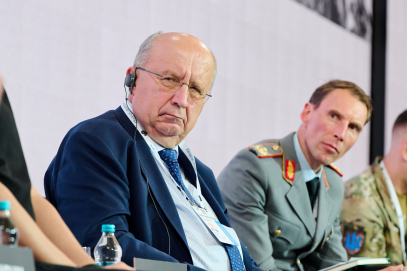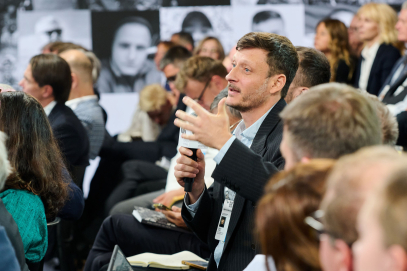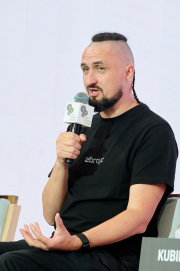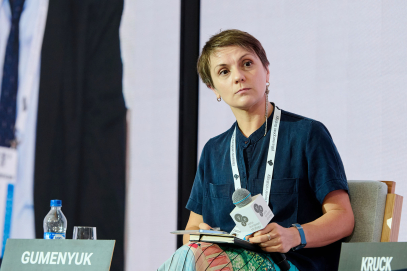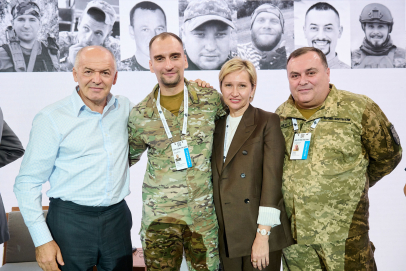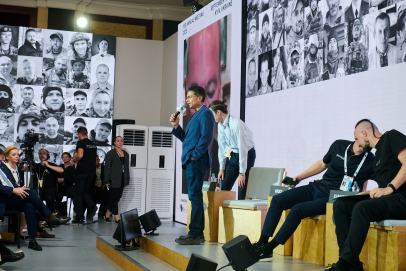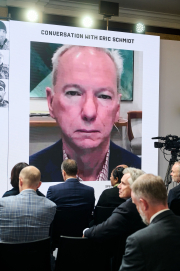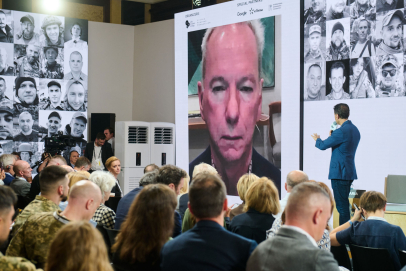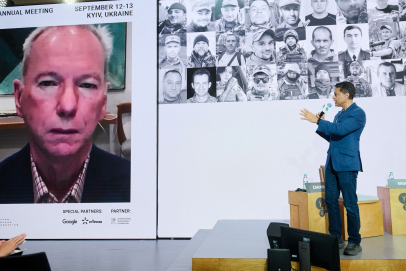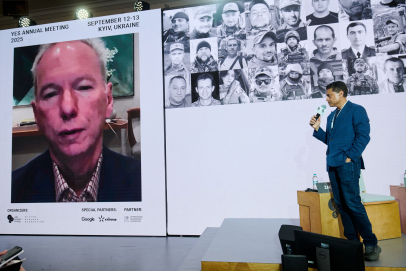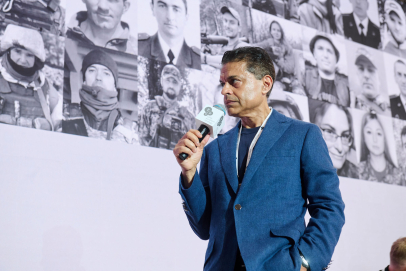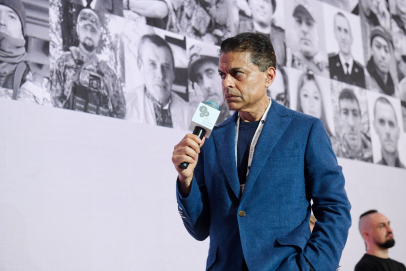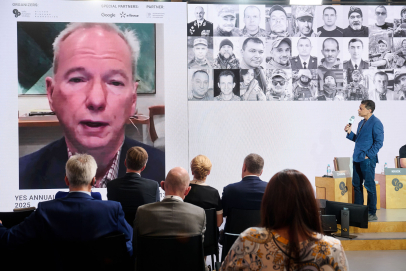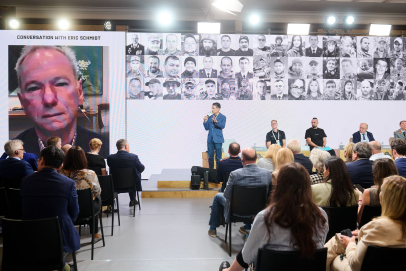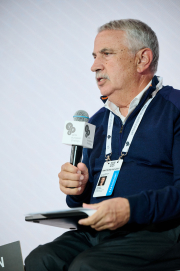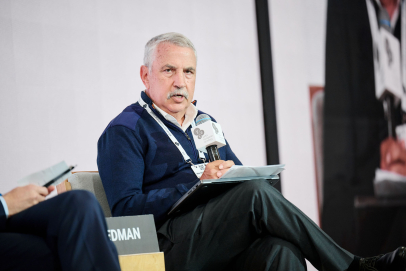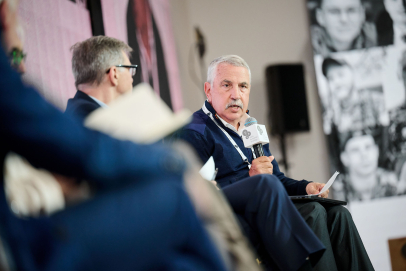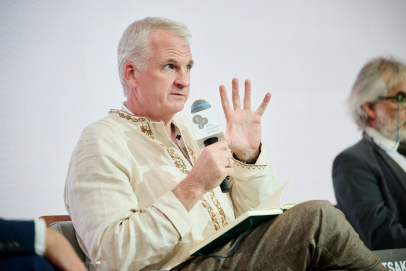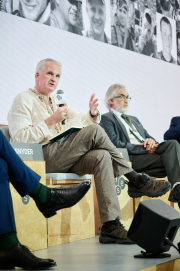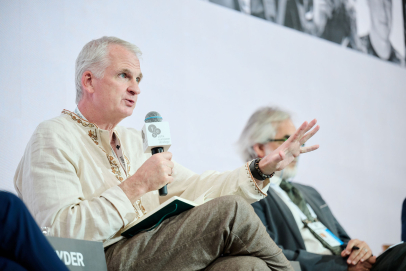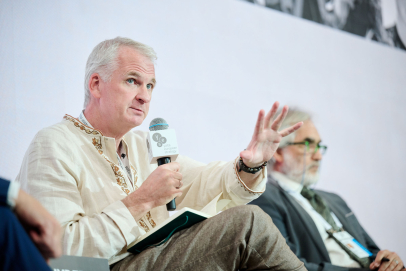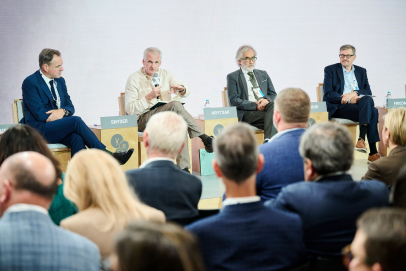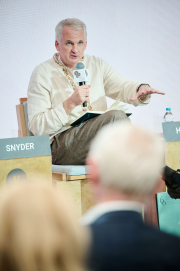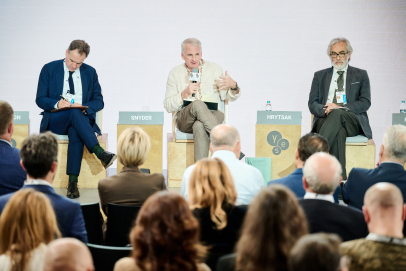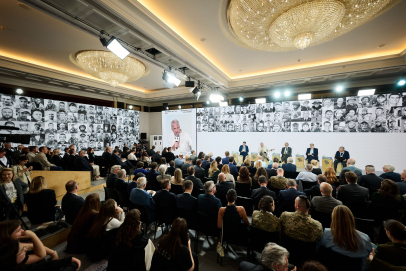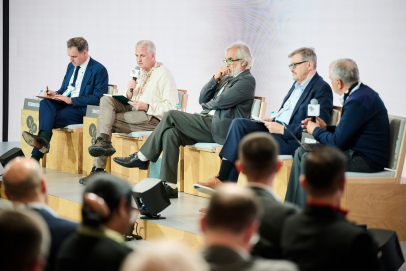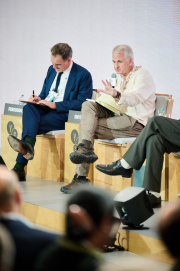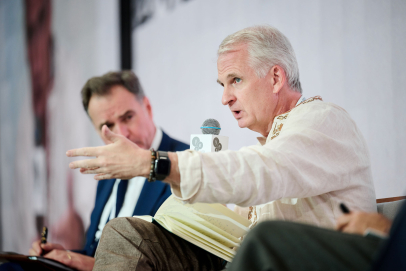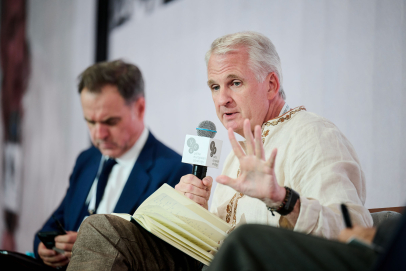Press about us
At Yalta the “ex” big politicians talk of Ukraine and Europe

Ukraine will not be joining the European Union for 10 years at least but the idea is not crazy...
The last President to visit the Livadia palace at Yalta was a certain Franklin D. Roosevelt in 1945. It was within the white walls of this magnificent building that the American President settled the world's affairs alongside Stalin and Winston Churchill. It took a long, 62-year wait before one of his successors followed in his footsteps. "Guest Star" on an impressive list of guests including, in particular, Gerhard Schröder, former Russian Prime Minister, Victor Chernomyrdin and the former Polish President, Aleksander Kwasniewski, Bill Clinton clearly savoured the moment.
This illustrious gathering of "ex"s took place from 28 June to 1 July in Ukraine to discuss the possible integration of the former Soviet Republic into the European Union. Watching such a gathering discuss a project that has no chance of being realised before the end of the next... decade may appear strange. But the idea is not so crazy.
It's been four years now since billionaire (also read "establishment") Viktor Pinchuk called the former "greats of the world" together at Yalta to encourage a rapprochement between Kiev and Brussels. The last twelve months have not helped his cause. A violent political battle paralysed Parliament for eight weeks. "This crisis is merely a sign that we are a very young democracy," stresses Viktor Pinchuk, "Parliament is very weak. It's a tragic, unhealthy situation."
The Ukrainian President doesn't deny it. "Ukraine has to understand that a lot is expected of her, particularly where press freedom and political stability are concerned," admits the Republic's President, Victor Yushchenko. Even the most ardent proponents of the country's joining the European Union are starting to lose patience. "Sometimes, I get very frustrated when I come here," admits Aleksander Kwasniewski. "How many times can Europe watch this country plunge into an ever-deteriorating permanent political crisis?" Brussels could leave the country to sink without any reaction. But it would have much to lose...
UKRAINE, A BOOMING MARKET
This nation has, "a human reserve of 46.3 million highly-educated people," reassures Stéphane Fouks, Chairman of EuroRSCG Worldwide, "It's the natural extension of the Union and it possess major agricultural and energy resources." Andrew Chulak supports this analysis. "It's a booming market. In Europe, growth rates of 4% to 5% are considered good. Here, they're talking about 20% or even 30% in some sectors," states the Mergers and Acquisitions director of the Deutsche Bank. And Ukrainian average earnings are constantly rising. "This country's entry into the Union would also be a good way to combat illegal immigration," notes Stephen Byers, a British MP. "If people think that there's a problem in this area, just wait till 2050 when the world population will reach between 6.5 and 9 billion people and the vast majority of this new population will be born in countries which already lack the means to meet their needs," warns Bill Clinton. If it is to join the Union in 2020, as foreseen last year by the gathering at Yalta, Ukraine still has a long road ahead.
"It has to combat corruption, reform its legal system and get rid of its Soviet mindset," states Kamen Zahariev, responsible for Ukraine at the European Bank for Reconstruction and Development (BERD). "Its future entry into the World Trade Organisation and its negotiations towards a free exchange accord are still very important steps." "Ambitious commercial accords could be a substitute for our joining the Union," is the opinion of Oleksander Chalyi, Deputy-Chairman of the Ukrainian President's secretariat. Stéphane Fouks is more ambitious. "Such accords should only be a stage towards this country's joining the Union," explains the MD of Havas, who works for Victor Pinchuk, "I don't believe in the theory of the half-pregnant woman. We mustn't stop halfway down the road."
Frédéric Therin,
Special Correspondent in Kiev and Yalta























































